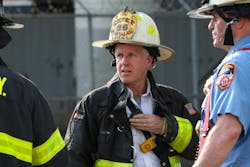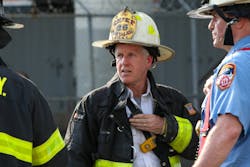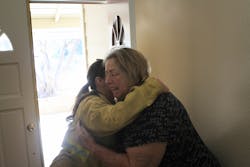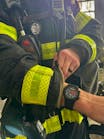Reputation management should be a primary concern of every fire department. It includes not only the overall image that’s projected but each individual contact that’s made with the customer. The late Chief Alan Brunacini embraced this dynamic, going so far as to name this anonymous citizen Mrs. Smith and to urge the need to provide her with exemplary service.
Regardless of whether it’s suppression, prevention, medical services or inspection personnel that’s involved, they all play a role in reputation management by performing their duties not only efficiently but—just as importantly—in a professional manner. Although these divisions/activities are essential, a fifth sector that’s critical to reputation is dispatch.
Citizen interaction with fire dispatch occurs under extremely stressful conditions. Lives and property are often at stake. The success or failure of an entire response can rest upon actions that are taken or are not taken during this exchange. Whether your communications are handled in-house or by a consolidated center is of little import. Many callers believe that they are talking directly to the responders. Therefore, the opinions that are derived from this initial contact reflect squarely upon your department. How can this experience be improved? Let’s take a look.Provide formalized training
Just as firefighters must develop a technical skill set and become proficient in the use of their tools, dispatchers, or telecommunicators, also must be well-trained. Although NFPA 1061: Standard for Public Safety Telecommunications Personnel Professional Qualifications speaks to this, there are no enforced national requirements for dispatch personnel. The content and quality of training is largely dependent upon the locality. In a survey of telecommunicators that I conducted for Firehouse Magazine (December 2018), 29 percent of respondents advised that they had either no structured training whatsoever or fewer than 80 hours of initial class work. That’s unfortunate; good outcomes never can be achieved without defining, reinforcing and monitoring outcomes in a formalized program of continuing education and quality assurance.
Standardization and common sense
Recently, the city of Minneapolis departed from the use of scripted protocols, because it felt that scripted protocols delayed the dispatch process. In contrast, the state of Indiana moved forward to require telecommunicator-provided CPR. Regardless of the path that you choose, it’s clear that standardized questions must be asked to assure that information that’s critical to proper dispatch and firefighter safety is consistently obtained, but telecommunicators must be allowed the ability to expedite the process when it becomes clear that an immediate life hazard exists. Learning crucial facts after you arrive on scene is a dangerous substitute for the relay of details to you during dispatch and response.
When things go wrong
Another key to preparing dispatchers to provide consistently good customer service is to address what to do when things go wrong. Too often, training programs omit the critical coverage of failure drills. Although it’s appropriate to know what to do during normal circumstances, it’s equally beneficial to understand how to operate during such situations as equipment malfunctions and service outages, particularly because these emergencies often happen in the middle of the night when technical support staff might not be available immediately. (In 2018, a hacker brought down the city of Baltimore’s computer-aided dispatch (CAD) system for 17 hours, which forced personnel to revert to manual processes.) Crises need to be accounted for, because citizen callers want to tell you about their problem—not listen to excuses for yours.Aptitude and attitude
Truly good dispatchers possess the skill and the will to help the public. Without the proper demeanor, the delivery of service always will be brought into question. In August 2019, events in Fort Smith, AR, put this requirement into laser focus: Debra Stevens, 47, drowned after she drove into flood waters. During her 9-1-1 call, Stevens was told to “shut up” and was admonished with “this will teach you. Next time don’t drive in the water.” Obviously, harsh language and lectures rarely are useful for controlling a 9-1-1 call. There’s no excuse for the dispatcher’s demeanor. More galling: She had tendered her resignation previously, and the day of the incident was her last day on the job.
Social media training
Today, much of the attitude that’s developed by consumers can be a result of information that’s received online or through social media. If your department doesn’t have a standard operating procedure for social media, make sure that social media is covered elsewhere, such as in your code of conduct.
If you lack a policy regarding the use of smartphones at work, you might want to reconsider. The presence of personal communications devices in dispatch bring with them certain risks. This past summer, a Fredericksburg, VA, dispatcher was accused of leaking sensitive information while on duty via her cellphone. (A preliminary hearing on the matter is scheduled for Jan. 23, 2020.) There also have been cases in which line-of-duty-death details were posted online by telecommunicators prior to the notification of next of kin.
These examples are illustrative of severe behavior, but there is no shortage of occurrences large or small (e.g., online bullying of co-workers, derogatory comments about agencies, posts indicating boredom caused from lack of work) that negatively affected reputation. Even seemingly innocuous participation in so-called challenges can bring repercussions. Although I am unaware of any actions that involve telecommunicators, correctional officers in North Carolina and Texas faced discipline as the result of “feeling cute” selfies in which they intimated the use of force. Even though these comments likely were made in jest, it underscores the fact that the general public might not share our sense of humor.
Similarly, presence on or participation in pages that are dedicated to religious, racial or gender intolerance and flat out hate speak shouldn’t be tolerated.
It all begins with dispatch
Whether in person or online, every contact that’s made by suppression, prevention, medical services or inspection personnel with the public is a brick in the wall of your department’s reputation. Often, the foundation for this wall is provided by dispatch, which is the first point of civilian contact in any emergency. To ensure that the foundation is sound, you must equip your telecommunicators with the tools—in particular, the training—that are needed that will permit a sturdy structure.

Barry Furey
BARRY FUREY, who is a Firehouse Contributing Editor, provides consulting and training services in emergency communications. He is the former director of the Raleigh-Wake Emergency Communications Center in North Carolina. During his 50-year public safety career, he has managed 9-1-1 centers and served as a volunteer fire officer in three other states. In 2005, Furey received a life membership in the Association of Public-Safety Communications Officials (APCO) International for his continued work in emergency communications. Furey was inducted into the Firehouse Hall of Fame in 2017.








